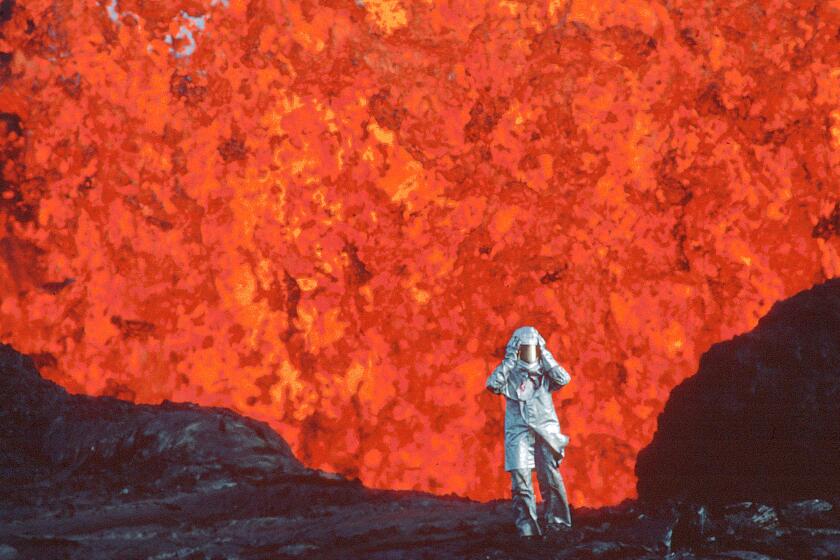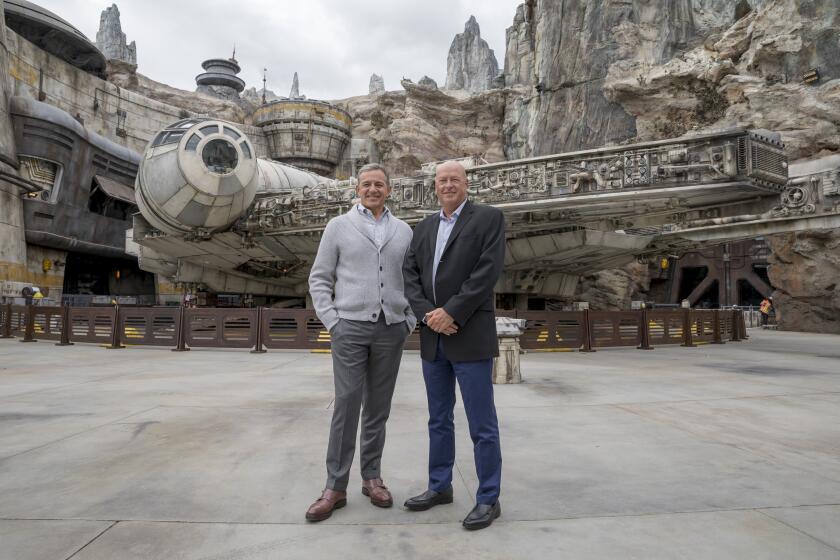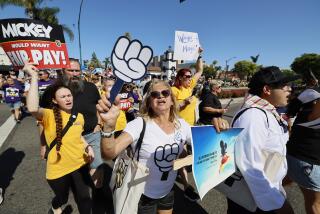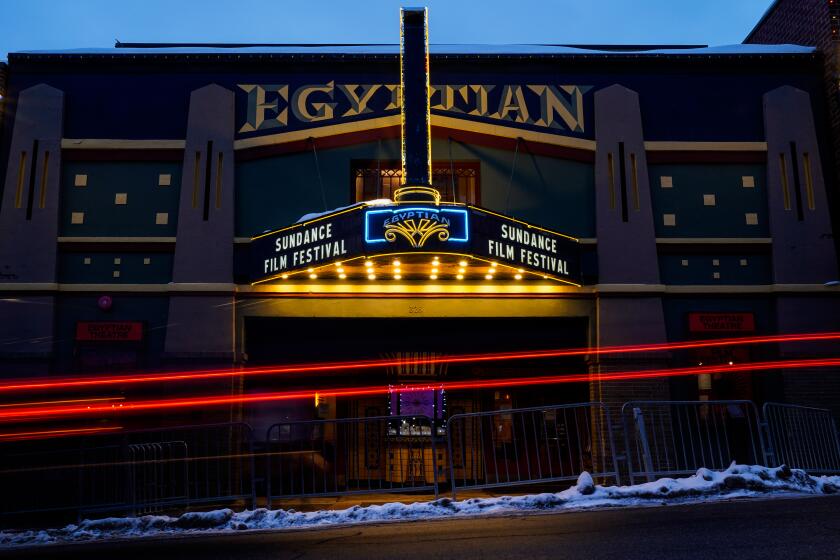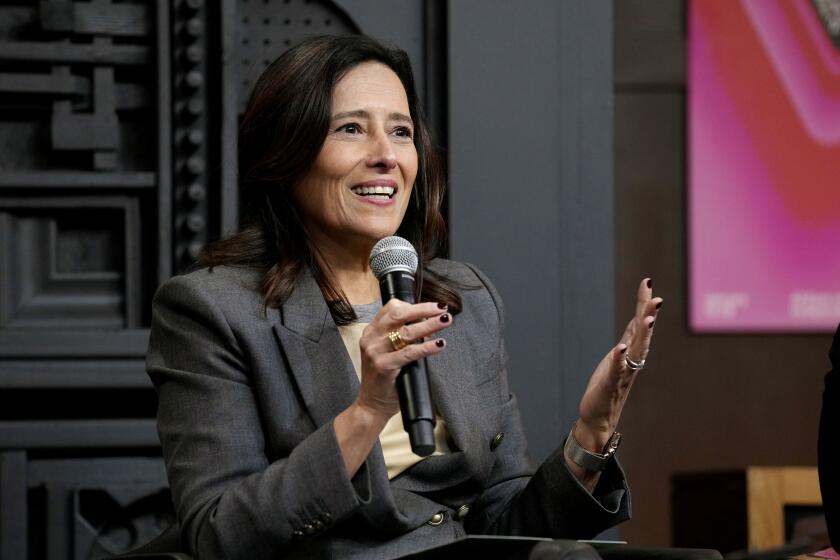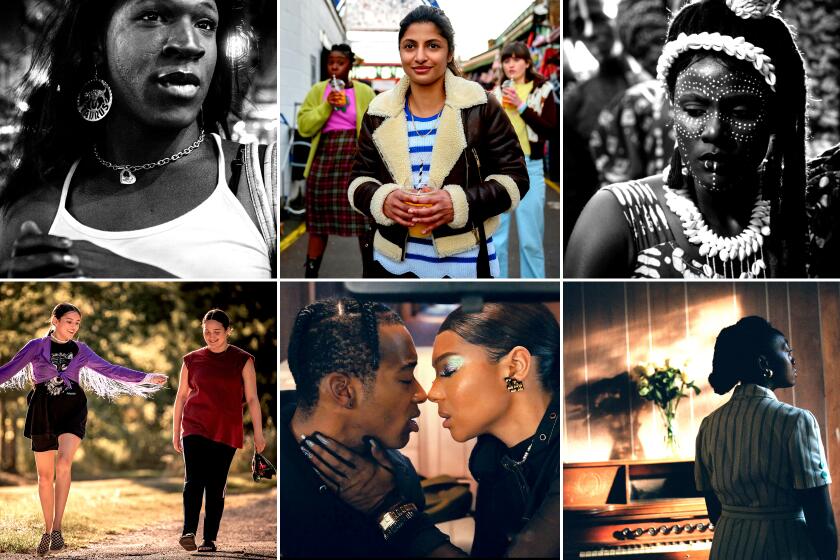At Sundance, Abigail Disney calls out corporate greed. Beginning with Disney
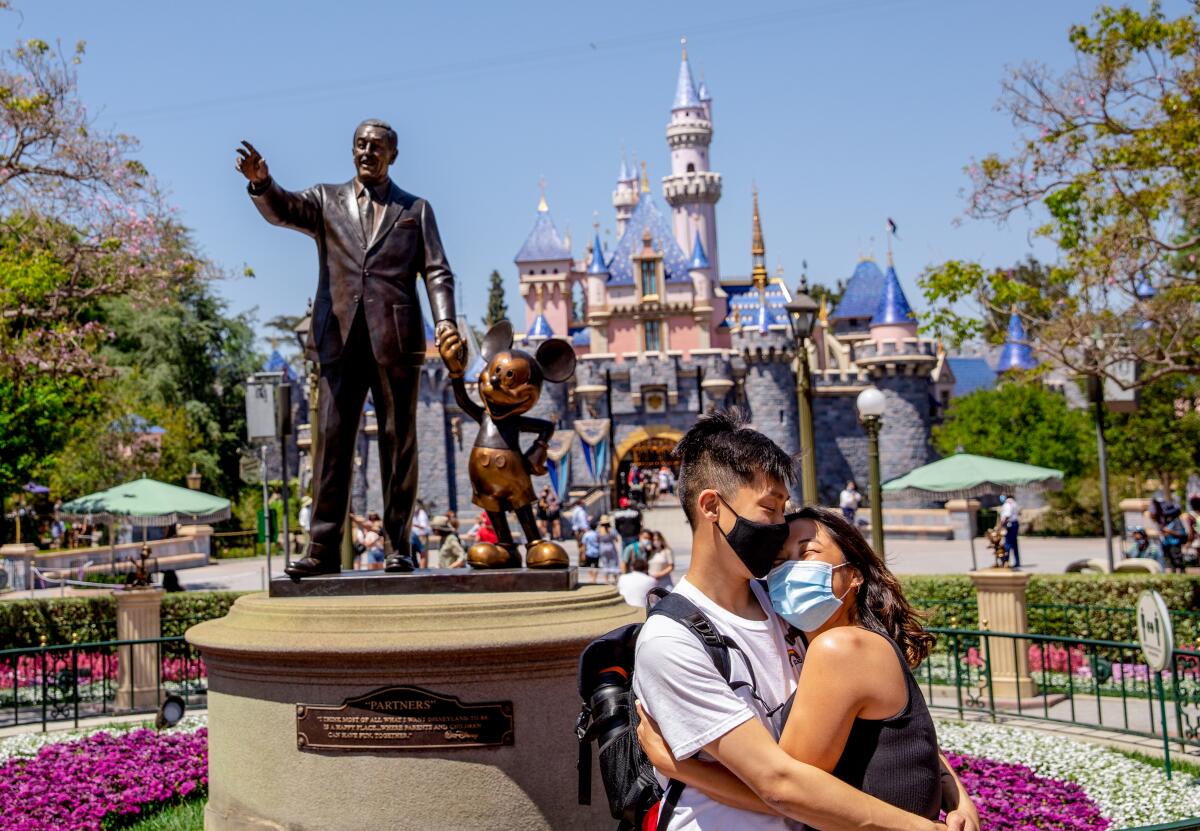
- Share via
For the last few years, Abigail Disney has waged an often bitter public campaign against the company that bears her last name, calling out Walt Disney Co. for what she sees as its egregious pay inequality.
In 2019, Disney wrote a viral Twitter thread calling the compensation of then-Disney Chief Executive Bob Iger, which topped $65 million in 2018, “insane.” That same year, she testified before the House Financial Services Committee at a hearing on strengthening the rights of workers.
Now the documentary film producer and philanthropist has done what the company her grandfather Roy O. Disney founded with her great-uncle Walt has been doing for nearly a century: She made a movie.
On Monday, the Sundance Film Festival premiered Disney’s blistering new documentary “The American Dream and Other Fairy Tales.” Through the stories of Disneyland workers living on the edge of poverty and the perspective of labor experts and academics, the film strips away the cheery veneer of the “Happiest Place on Earth” to expose what Disney sees as the immoral culture of corporate greed at not only its heart but that of American capitalism as a whole.
“Fire of Love,” “Good Luck to You, Leo Grande” and “Happening” are among the standouts at the second all-virtual edition of Sundance.
Disney and co-director Kathleen Hughes center the film on four Disneyland custodians, all of whom are struggling to make ends meet on their $15 an hour salaries and unable to afford their own homes. The documentary draws a stark contrast between the Disney family’s own fabled rags-to-riches story and the plight of Disneyland “cast members” who are at times forced to sleep in their cars or choose between medication and food.
The film, which is seeking distribution, further castigates Walt Disney Co. for squeezing tax breaks and subsidies out of Anaheim while the city’s working-class neighborhoods have gone neglected and for perpetuating myths of American progress that have obscured the country’s exploitative and racist power structures.
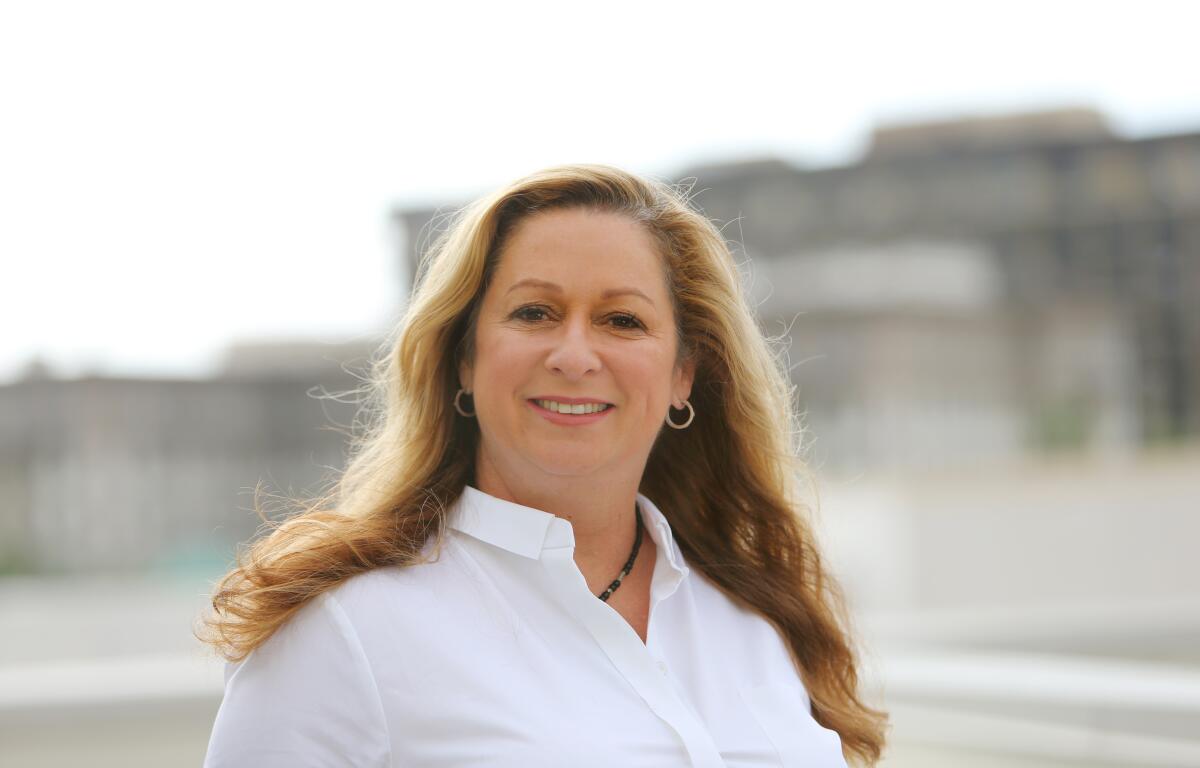
“I’m really proud of what my grandfather and great-uncle did,” Disney says early in the documentary. “They brought so much joy to the world.” But looking at the often difficult lives of those workers who help keep the theme parks running, the Disney heiress, who has advocated for higher taxes on the wealthy, says she feels “complicit” in a system she believes is grossly unfair.
Two of Disney’s siblings, her sister Susan Disney Lord and brother Tim, serve as executive producers of the film. The Disney family has had no role in managing the company since the producers’ father, Roy E. Disney, resigned from the board in 2003.
Walt Disney Co., which recently agreed to a 16% wage increase for some of its unionized California resort workers, has repeatedly pushed back against Disney’s criticisms — and did so again in response to the new documentary.
Pay increased from the prior year, during which top executives did not take cash bonuses. Bob Iger’s pay soared as well.
In a statement, a spokesman for the company said, in part, “The well-being and aspirations of our employees and cast will always be our top priority. We provide a leading and holistic employment package that includes competitive pay and comprehensive benefits for our Cast Members to grow their careers and care for their families. That starts with fair pay and leading entry wages, but also includes affordable medical coverage, access to tuition-free higher education, subsidized childcare for eligible employees, as well as pathways for personal and professional development.”
In a Q&A following the film’s online premiere, Disney and Hughes were joined by two of the film’s subjects, former Disneyland workers named Ellie Gonzalez and Artemis Bell.
“I have a wish for this film to find a way into the hearts of people who don’t normally talk about politics or the economics of income inequality,” Disney said. “We have the capacity to remake this economy if we want to. It does not have to be this way.”
“If you walk away from the film thinking we have to reform Disney then we haven’t done our jobs,” said Hughes. “We’re really hoping that people understand that this is a much larger conversation that we all need to engage in.”
Bell said she was grateful that Disney’s film gave her and other Disneyland workers a voice. “I was just impressed that she was interested in hearing from us at all because so few people in her position seemed interested in hearing from us and getting down in the mud and seeing actually what was happening.”
Despite the spotlight that her last name brings, Disney said she doesn’t want her own personal battle with the Disney empire to draw attention away from the larger issues the film raises. “I didn’t really ever want [the documentary] to be a personal attack,” she said. “I don’t want to be a gotcha person or a confrontation person. I just want to open the door to a lot of questions.”
At the same time, Disney said she has no intention of backing down in her fight, whatever the consequences may be for her or for the Disney empire.
”It’s clear that if I succeed in really centering a pretty trenchant critique of the company in the consciousness of this country, there’s a risk that the company will be hurt in a big way — share prices will drop and ultimately I’ll be hurt personally by that,” she said. “But isn’t that the nature of solidarity?”
More to Read
Only good movies
Get the Indie Focus newsletter, Mark Olsen's weekly guide to the world of cinema.
You may occasionally receive promotional content from the Los Angeles Times.
